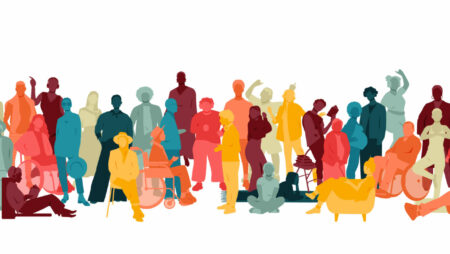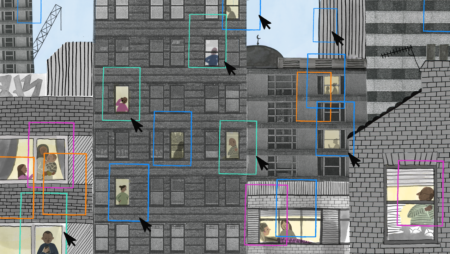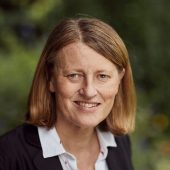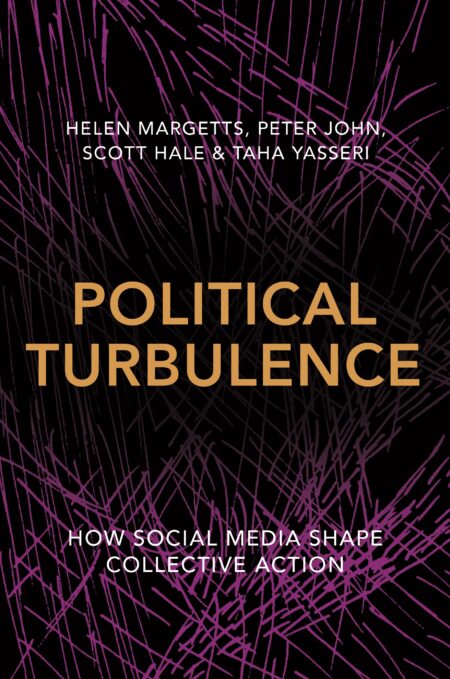
Conversations between governments and citizens in a digital society
This project seeks to understand how citizens listen and speak to public institutions, and how alternative AI-based models and framing might encourage democratic communication.

The Internet has transformed political behaviour, from voting and campaigning for policy change, to protest and even revolution. This poses a challenge to states, as political movements become more turbulent, unpredictable, and societies harder to govern. To understand this radically transformed political world, we are re-examining the models and conceptual frameworks of political science and theory, and developing social data science methodologies to understand political behaviour.
Now more than ever, the public needs to be able to rely on trustworthy information about government policy and activity.
Professor Philip Howard
Professor of Internet Studies

Since 2012, the Programme on Democracy & Technology (previously known as the Project on Computational Propaganda) has been investigating the use of algorithms, automation, and computational propaganda in public life. Our goal is to use rigorous social science and computational methods to increase civic engagement and promote democratic values.
This programme of activity is backed by a team of social and information scientists eager to protect democracy and put social data science to work for civic engagement. We use qualitative, comparative, quantitative and computational methods, and often work with academics, journalists, independent investigators, and policy makers to identify new problems and craft new research questions.
We work with many kinds of data, do international fieldwork, and engage in “real-time” social and information science, actively disseminating our findings to journalists, industry, policy makers, and the interested public.
The global pandemic has brought to the fore the pressing problems caused by disinformation, leading many scholars to study the “infodemic” that is accompanying and exacerbating the public health crisis. Our research on COVID-related disinformation looks at the prominence of stories by junk news outlets and state-backed media outlets on social media.

This project seeks to understand how citizens listen and speak to public institutions, and how alternative AI-based models and framing might encourage democratic communication.

This project examines the fragmented legislations and legal landscape that governs the development, sale, and deployment of AI technologies used for government surveillance.

Based on a case-study analysis of bias in the Chicago Crime Prediction Algorithm, this project explores the extent to which evidence of algorithmic bias can be used to guide policy responses to the societal disparities replicated in these tools.

Professor of Society and the Internet
Helen Margetts is Professor of Society and the Internet, a political scientist specialising in digital government and politics. She was Director of the OII from 2011-18. She is a Professorial Fellow of Mansfield College.
The OII is home to some of the top academics studying digital politics and government, including Professor Helen Margetts. She is a political scientist specialising in the relationship between digital technology and government, politics and public policy. She is an advocate for the potential of multi-disciplinarity and computational social science for our understanding of political behaviour and development of public policy in a digital world. She has published over a hundred books, articles and policy reports in this area, including Political Turbulence: How Social Media Shape Collective Action (with Peter John, Scott Hale and Taha Yasseri, 2015); Paradoxes of Modernization (with Perri 6 and Christopher Hood, 2010); Digital Era Governance (with Patrick Dunleavy, 2006, 2008); and The Tools of Government in the Digital Age (with Christopher Hood, 2007).
Professor Margetts joined the OII in 2004 from University College London where she was a Professor in Political Science and Director of the School of Public Policy. She began her career as a computer programmer and systems analyst with Rank Xerox after receiving her BSc in mathematics from the University of Bristol. She returned to study at the London School of Economics and Political Science in 1989, completing an MSc in Politics and Public Policy in 1990 and a PhD in Government in 1996. She worked as a researcher at LSE from 1991 to 1994 and a lecturer at Birkbeck College, University of London from 1994 to 1999.

Research Associate
In 2022 Jonathan Bright became the Head of AI for Public Services at the Turing Institute, having previously been a faculty member of the OII. A political scientist, he specialises in computational and ‘big data’ approaches to the social sciences.

Director, Associate Professor, Senior Research Fellow
Dr Scott A. Hale is Director, Associate Professor and Senior Research Fellow. He develops and applies computer science techniques to the social sciences focusing on increasing equitable access to quality information.

Professor of Internet Studies
Philip N. Howard is a professor of sociology, information, and international affairs. He is Director of the Programme on Democracy and Technology, and is a Professorial Fellow of Balliol College.
Our researchers make an impact with highly-cited written work. They publish best selling-books for both academic and popular audiences, reports and memos which influence policy makers, and accessible comment and opinion, setting out the latest in digital politics and government.

This book demonstrates how data science and experimentation with social data can provide a methodological toolkit for understanding, shaping, and perhaps even predicting the outcomes of a new "democratic turbulence".

By Hamza Salem and Fabian Stephany
In this blog we explain how we build a statistical model to predict US congressional elections using Wikipedia pageview data as a main indicator. We train our model on US House and Senate data from the 2016 and 2018 elections, and find it to be particularly useful in predicting the success of non-incumbent challenger campaigns. We use our model to forecast the outcomes of the 2020 US Senate election.
In the digital era, political institutions, activities and relationships are increasingly mediated and shaped by the technologies of information and communication. Our teaching programmes provides students with the toolkit of concepts, theories, methods and principles to carry out ‘e-literate’ analysis of politics and policy and to conduct further postgraduate research in this field.
The digital era government and politics course will approach the study of government and politics through the lens of data science. The aim is to introduce students both to classic theories in the sub-field and also the latest applications of data science techniques to testing these theories.
Students will leave with both a wide ranging grounding in political science and (a) insight into how data science can be used to shed new light on key debates in the field and (b) understanding of where data science is (or could be) changing the political landscape through its use by political actors, such as in large-scale data-led election campaigns; for policy-making; and through the use of algorithms in computational propaganda.

Oxford and AISI researchers reveal how conversational AI can change political opinions
4 December 2025
A new joint study from the Oxford Internet Institute (OII) and the AI Security Institute (AISI) uncovers how conversational AI sways political beliefs and why it works.
New leadership at the Oxford Internet Institute
27 October 2025
The OII is pleased to announce Dr Scott A. Hale appointed as its next Director, and Dr Kathryn Eccles as Deputy Director.
New report calls for decisive government action to help build public trust in AI
24 September 2025
A new paper from the Tony Blair Institute for Change, featuring a guest contribution from the OII’s Professor Helen Margetts, calls for government action to build better public trust in AI.